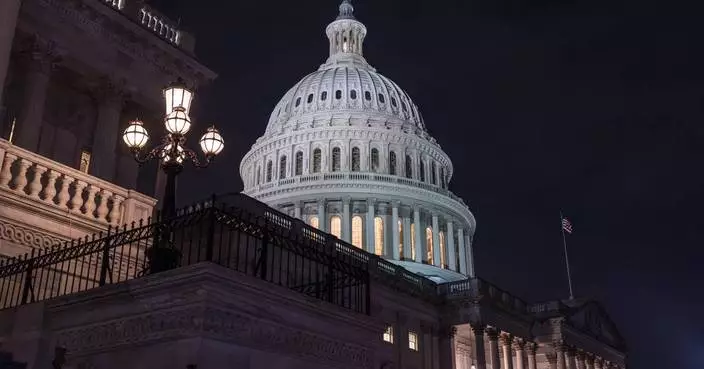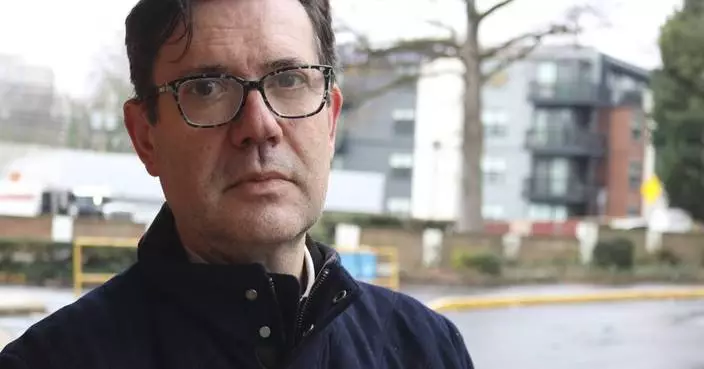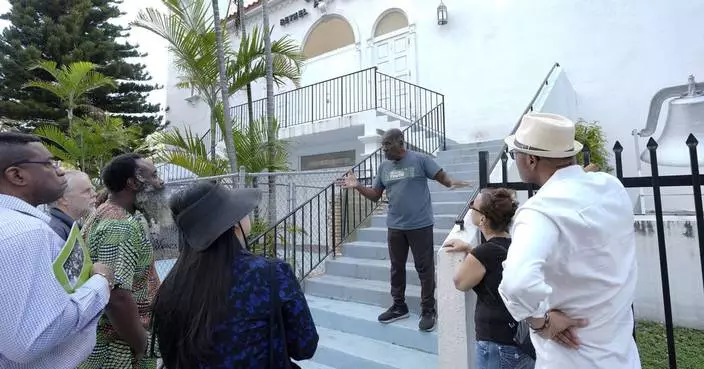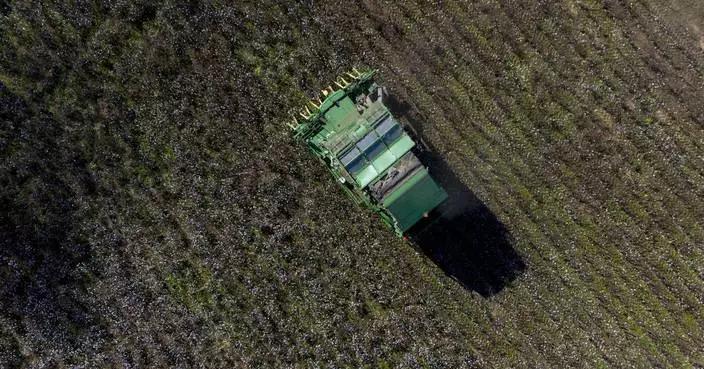DAMASCUS, Syria (AP) — The toppling of Bashar Assad has raised tentative hopes that Syrians might live peacefully and as equals after a half century of authoritarian rule.
While there have been bursts of deadly sectarian violence in the days since Assad was ousted, it’s nothing close to what was feared after nearly 14 years of civil war.
Much credit for the relative calm so far is being given to the Islamic militant group that led the insurgency against Assad and is helping to rebuild the country and unite its many factions. The group — Hayat Tahrir al-Sham, or HTS — had ties to al-Qaida, but it has vowed not to discriminate against any religion or ethnicity, and it has denounced revenge killings.
In the days since Assad’s fall, dozens of Syrians have been killed in acts of revenge, according to activists and experts who monitor Syria. The vast majority have been from the minority Alawite community, an offshoot of Shia Islam that the Assad family adheres to.
Given the key role Alawites played in Assad's brutally repressive government, experts had expected sectarian violence to be more widespread. But HTS has worked to reduce tensions in villages where revenge killings — as well as looting and harassment — have taken place, according to local activists.
Whether peace and pluralism will prevail longer-term remains to be seen, experts caution.
“The extent of the reprisals has been quite limited," said Hilal Khashan, a political science professor at the American University of Beirut. "We hope this violence will not escalate, leading to an outburst of civil strife.”
During the Assad family’s 50 years of iron-fisted rule, Alawites held many top positions in the military and in the intelligence and security services, which ran prisons where thousands of people accused of anti-government activities were tortured and killed, according to human rights groups.
The interim government led by HTS has vowed to gather evidence and hold trials in a special court against former officials who oversaw, or worked in, Assad's notorious prisons. It has also promised amnesty for other government workers and former members of the military, some of whom have started handing in their weapons.
“If we want to establish social peace there must be justice, and there is no justice without accountability,” said Obeida Arnaout, a spokesman for the interim government. “Those who have blood on their hands will get no amnesty.”
The interim government has urged reconciliation among the country’s different ethnic factions — mainly Arabs and Kurds — and mutual respect among its religious groups. Three-quarters of Syria's 23 million citizens are Sunnis, one-tenth are Alawites, and the rest are a mix of Christians, Ismaili Shiites and Druze.
Under Assad, Syrians enjoyed religious and other freedoms. Men and women mingled freely at beaches and other public places; restaurants served alcoholic beverages; and women held senior posts in government.
Now that power resides in the hands of HTS, many Syrians — as well as Western governments and human rights groups — are concerned the country could be transformed into a theocracy.
So far, the HTS-led coalition has not imposed any strict religious rules, such as forcing women to wear veils, and it has allowed journalists from around the world to report freely. Over years of control in the northwest Syrian province of Idlib, HTS allowed Christians and Druze to practice without interference.
HTS is led by a former al-Qaida member who has renounced extremism and spent years working to remake his public image, depicting himself as a champion of pluralism and tolerance. Still, the United States, other Western countries and the U.N. still consider HTS a terrorist organization — a branch of al-Qaida in Syria, but with a different name.
One of the top priorities of HTS and its leader – Ahmad al-Sharaa -- is to get the terror designation removed, which could then lead to economic sanctions against Syria being lifted.
U.S. officials say al-Sharaa’s public statements about protecting minority and women’s rights are welcomed. But they are skeptical he will follow through on them in the long run.
Secretary of State Antony Blinken said last weekend that the U.S. is in contact with HTS and that its "message to the Syrian people is this: We want them to succeed and we’re prepared to help them do so.”
Since Assad fled the country, at least 72 men and women have been killed in sectarian violence, according to the Syrian Observatory for Human Rights, a war monitor based in Britain. It says the killings occurred in four religiously mixed provinces — Hama and Homs in central Syria, and Tartus and Latakia along its eastern coast.
Gunmen stormed the village of Bahra in Hama province on Dec. 9, and killed a dozen Alawites over three days — eight of whom were from the same family, according to a resident of the village who spoke to The Associated Press on condition of anonymity out of fear of reprisals. In nearby Mouaa, six men were killed, and in Um al-Amad, a man and his son were shot dead, the resident of Bahra said.
The three villages are now almost empty after the most residents fled to the Alawite heartland, in the coastal province of Tartus, the Bahra resident said. “The reason why I am speaking is to try stop the killings,” he said.
In the Assad stronghold of Masyaf, gunmen last week kidnapped Muhieddine al-Haybe, the brother of a Shiite cleric who fled the town in Hama province shortly after the fall of Assad’s government, according to an anti-Assad activist who would only provide his first name, Hussein, out of concern for his safety. He said al-Haybe's body and three other unidentified dead bodies were later found near a military post.
A third person from the area said the situation was tense for days until HTS hosted a meeting over the weekend that brought together Sunni and Alawite dignitaries from nearby villages, including Rabia, Tizin, Metnine and Mouaa. By the end of the meeting, the participants reconciled and agreed to end any acts of violence, according to this person, who is Alawite and insisted on anonymity out of fear.
“We were also the victims of the regime,” the person said, adding that the Assad government did not offer civilian jobs to Alawites, which put pressure on them to join the military and security services.
The man said his house was looted and his six cows were stolen.
There have been reports of al-Sharaa himself trying to keep the peace among Syria’s many factions.
Syrian media reported that he met in Damascus on Monday with a delegation from the Druze community and told them that his goal was to unite Syria and create a free society.
Some Syrians say there might have been more sectarian violence in the aftermath of Assad's ouster had his forces mounted a serious fight against HTS and other militants behind the insurgency. Instead, Assad's army essentially melted away and chose not to defend his government.
“We are witnessing some sectarian incidents, but they are all individuals acts,” said Rayan Maarouf, an anti-Assad activist who is a member of Syria's Druze minority in the southern city of Sweida.
Associated Press writer Sarah El Deeb contributed from Damascus.
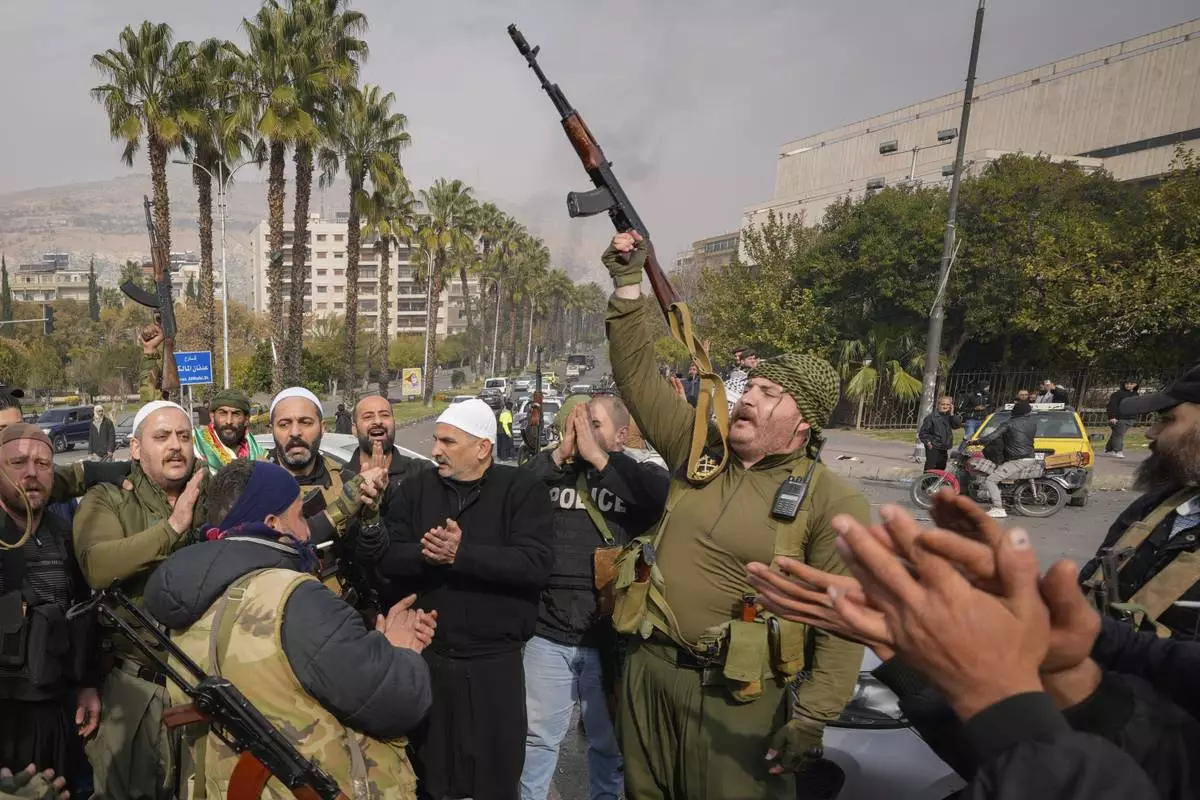
FILE - Opposition fighters celebrate the takeover of the city by the insurgents in Damascus, Syria, Sunday, Dec. 8, 2024. (AP Photo/Hussein Malla, File)
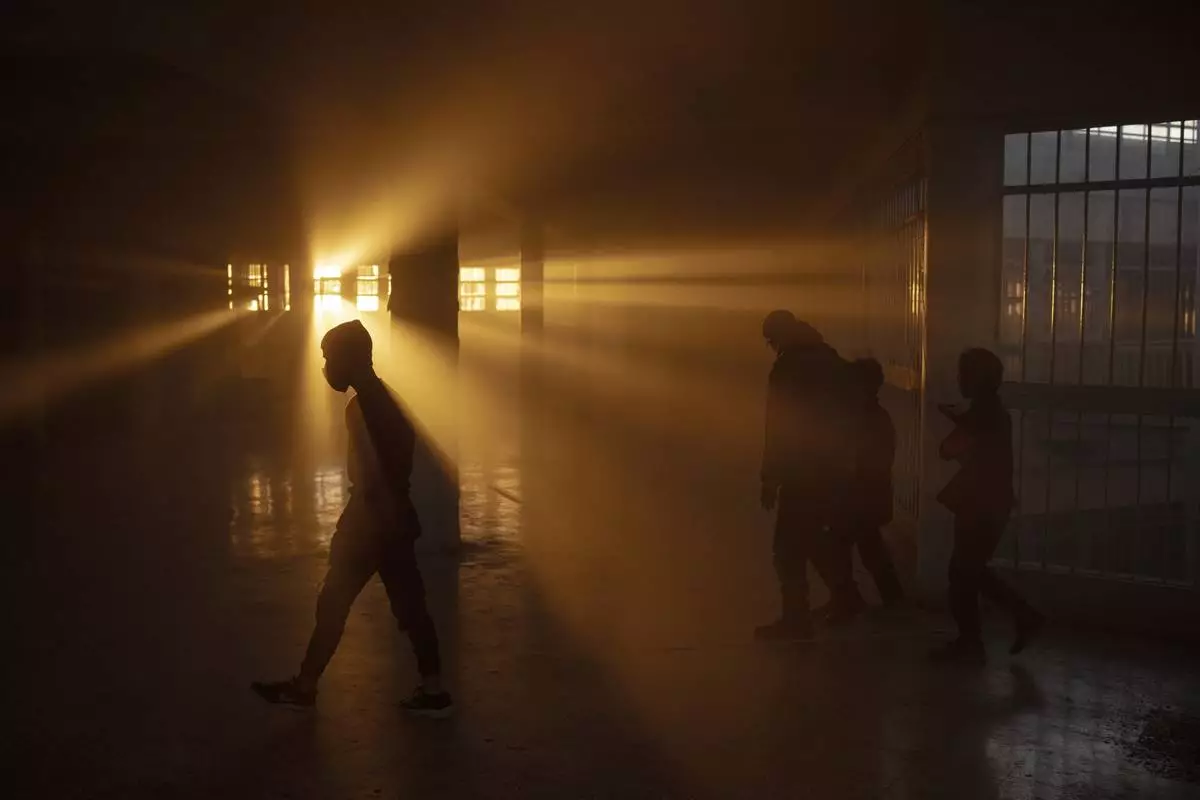
FILE - The setting sun casts a warm glow through the windows of the infamous Saydnaya military prison in the outskirts of Damascus, Syria, Wednesday, Dec. 18, 2024. (AP Photo/Leo Correa, File)

FILE - A Syrian woman with a scarf in colors of the Syrian opposition flag takes a selfie with her friends as they celebrate in a restaurant in Damascus, Syria, Tuesday, Dec. 17, 2024. (AP Photo/Omar Sanadiki, File)
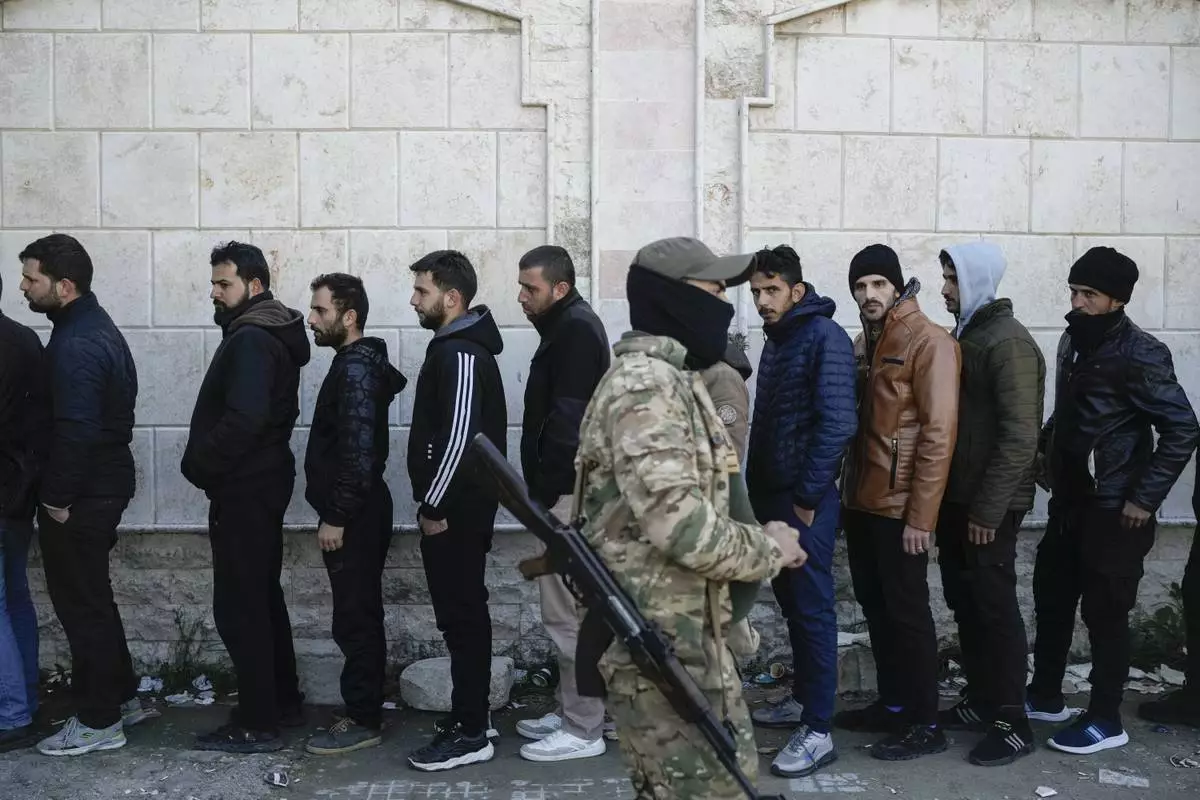
FILE - Members from Bashar Assad's Syrian army period line up to register with Syrian rebels as part of a "identification and reconciliation process" at a army compound in Latakia, Syria, Tuesday, Dec. 17, 2024. (AP Photo/Leo Correa, File)

FILE - People are dispersed by Syrian fighters during looting at a residential complex of former Bashar Assad's military officers at the village of Husseiniyeh, in the outskirts of Damascus, Syria, Sunday, Dec. 15, 2024. (AP Photo/Leo Correa, File)
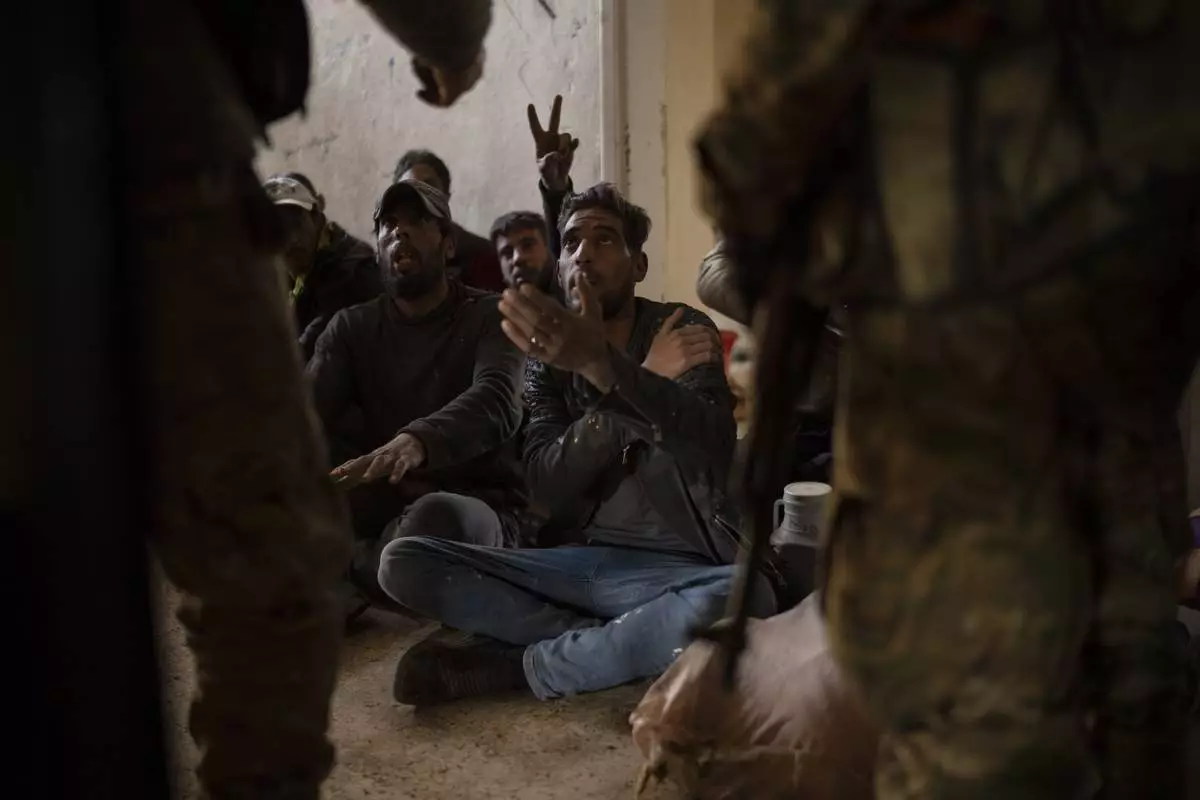
FILE - Syrian fighters detain men suspected of looting at a residential complex of former Bashar Assad's military officers at the village of Husseiniyeh, in the outskirts of Damascus, Syria, Sunday, Dec. 15, 2024. (AP Photo/Leo Correa, File)
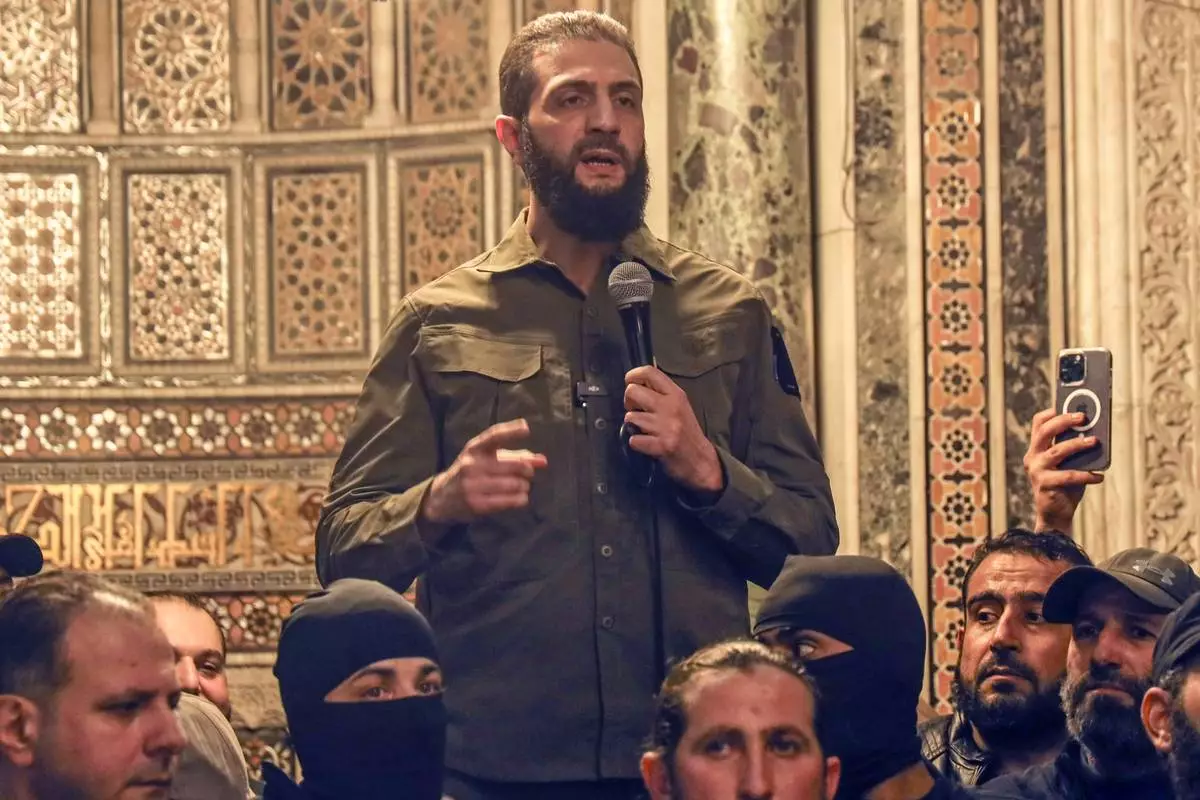
FILE - Ahmed al-Sharaa, also known by nom de guerre Abu Mohammed al-Golani, speaks at the Umayyad Mosque in Damascus, Syria, Sunday, Dec. 8, 2024. (AP Photo/Omar Albam, File)
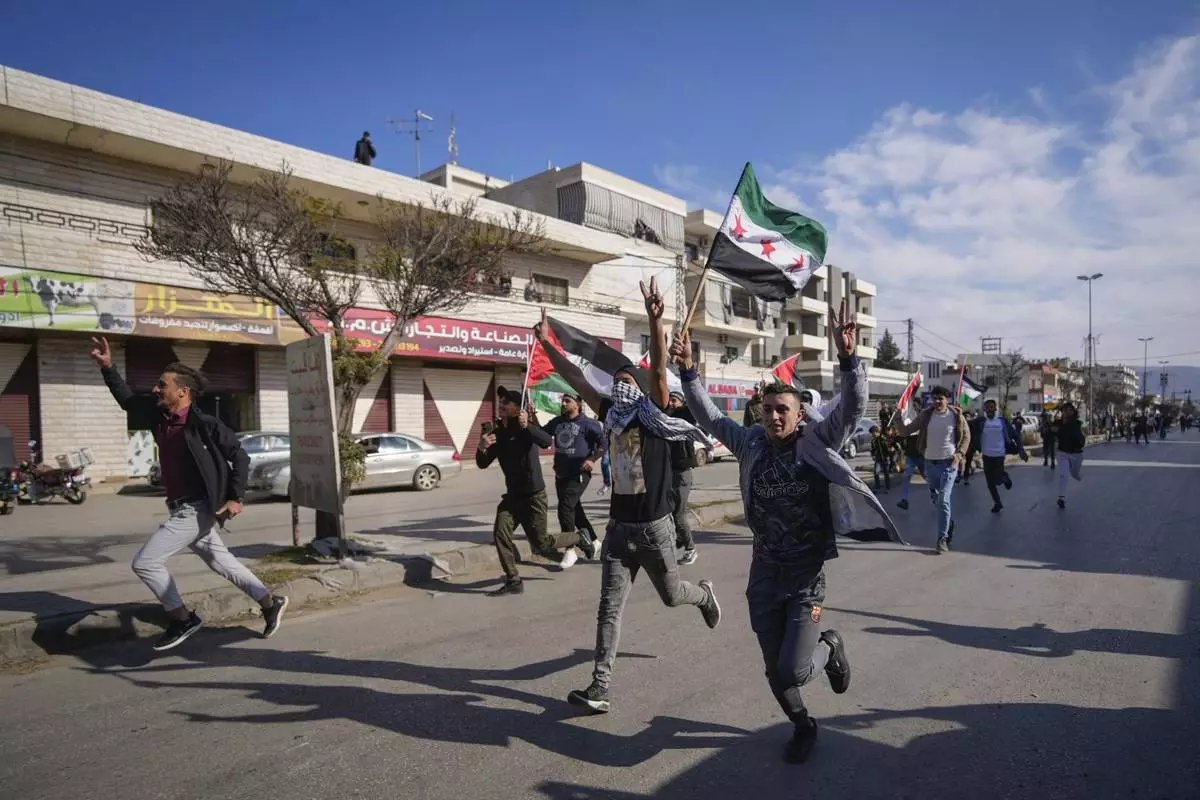
FILE - Syrians celebrate the fall of Bashar Assad's government in the town of Bar Elias, Lebanon, near the border with Syria, Sunday, Dec. 8, 2024. (AP Photo/Hassan Ammar, File)














